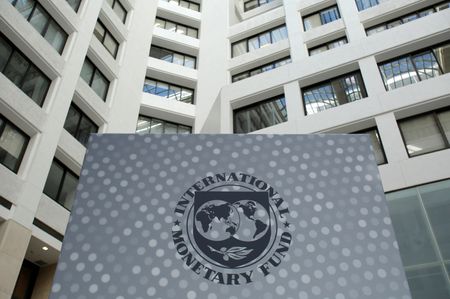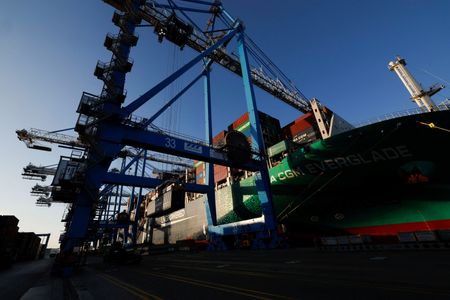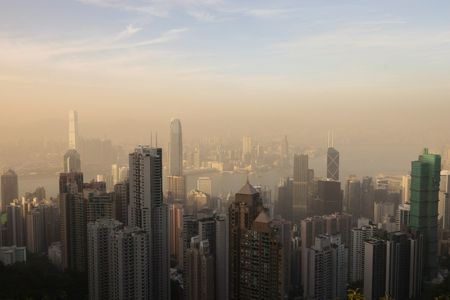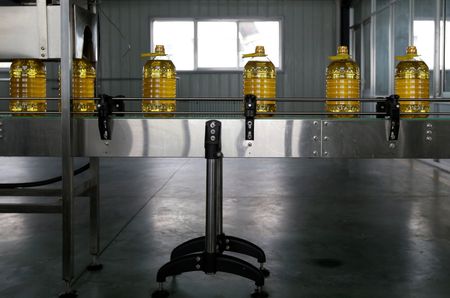By David Lawder, Greta Rosen Fondahn and Maria Martinez
STOCKHOLM (Reuters) -U.S. and Chinese officials agreed to seek an extension of their 90-day tariff truce on Tuesday, following two days of what both sides described as constructive talks in Stockholm aimed at defusing an escalating trade war between the world’s two biggest economies that threatens global growth.
No major breakthroughs were announced, and U.S. officials said it was up to President Donald Trump to decide whether to extend a trade truce that expires on August 12 or potentially let tariffs shoot back up to triple-digit figures. But U.S. Treasury Secretary Scott Bessent tamped down any expectation of Trump rejecting the extension.
“The meetings were very constructive,” Bessent told reporters after the meetings wrapped up. “It’s just that we haven’t given the signoff.”
As Trump returned to Washington after visiting Scotland, where he inked a trade deal with the European Union, he said Bessent had just briefed him on the China talks.
“He felt very good about the meeting, better than he felt yesterday,” Trump told reporters aboard Air Force One.
After months of threatening high tariffs on trading partners, Trump has secured trade pacts with the EU, Japan, Indonesia and others, but China’s powerhouse economy and grip on global rare earth flows make these talks particularly complex.
Both sides in May walked back from imposing triple-digit tariffs on each other in what would have amounted to a bilateral trade embargo. But global supply chains and financial markets could face renewed turmoil without an agreement.
Bessent told reporters he expects to meet with Trump on Wednesday after both have returned to Washington, and the president would have the final say on any extension.
Another 90-day extension is one option, U.S. Trade Representative Jamieson Greer added.
“We had constructive meetings for sure, to go back with the positive report. But the extension of the pause, he’ll decide,” Greer said after talks at Rosenbad, the Swedish prime minister’s office in central Stockholm.
TRUMP SEES MEETING WITH XI BY YEAR-END
Bessent said there would likely be another meeting between U.S. and Chinese officials in about 90 days, and the agreements on the flow of Chinese rare earths were becoming more refined after previous talks in Geneva and London.
“There was good personal interaction being built up, good, mutual respect. I think we understand their agenda much better,” he said.
Underlining the stakes, the International Monetary Fund on Tuesday raised its global growth forecast but flagged a potential rebound in tariff rates as a major risk.
China’s top trade negotiator Li Chenggang said both sides fully recognized the importance of maintaining a stable and sound economic and trade relationship.
“The Chinese and U.S. economic and trade teams will maintain active communication, exchange views on economic and trade issues in a timely manner, and continue to promote the stable and healthy development of bilateral economic and trade relations,” said Li.
The talks could pave the way for a meeting between Trump and Chinese President Xi Jinping later in the year, though Trump denied going out of his way to seek one and U.S. officials said the topic was not discussed. Aboard Air Force One, Trump said he thinks he will meet with Xi before the end of the year, though he did not elaborate.
The Stockholm meetings also included a lengthy discussion on the U.S. and Chinese economies, with Greer and Bessent emphasizing the need for China to shift away from a state-led, export-driven manufacturing economy to one powered by increased consumer demand, which would help U.S. exports.
“Cooperation between China and the United States will benefit both sides, while if they fight both will be hurt,” according to a readout of the meetings from China’s state news agency Xinhua. “Stable, healthy and sustainable economic and trade relations between China and the United States are not only conducive to achieving their respective development goals, but also conducive to promoting the development and stability of the world economy.”
CHINA VS. EU TALKS
The Stockholm talks follow Trump’s biggest trade deal yet with the European Union on Sunday for a 15% tariff on most EU goods exports to the United States, and a deal with Japan.
That agreement has brought a measure of relief to the EU but also frustration and anger, with France denouncing the deal as a “submission” and Germany, Europe’s largest economy, warning of “significant” damage.
China can exercise leverage with its grip on the global market for rare earths and magnets, used in everything from military hardware to car windshield wiper motors, analysts say.
Unlike the EU, it does not rely on the United States for security ties and can let trade talks play out for several more months, Cyrus de la Rubia, chief economist at Hamburg Commercial Bank, told Reuters.
“China is well aware of its strong negotiating position, as could clearly be seen in the temporary escalation observed in April,” he said.
“But over Europe always hangs the Damocles sword of the U.S. withdrawing its security guarantee, and that is why the EU did not escalate the situation like China did.”
Previous U.S.-China trade talks in Geneva and London in May and June focused on bringing U.S. and Chinese retaliatory tariffs down from triple-digit levels and restoring the flow of rare earth minerals halted by China; and Nvidia’s H20 AI chips and other goods halted by the United States.
Among broader economic issues, Washington complains that China’s state-led, export-driven model is flooding world markets with cheap goods, while Beijing says U.S. national security export controls on tech goods seek to stunt Chinese growth.
Separately, China’s industry minister on Tuesday met with a delegation of U.S. businesses, including Apple, in Beijing, and pledged to uphold fair and open market competition and provide support and services for foreign enterprises.
(Reporting by David Lawder, Greta Rosen Fondahn, Maria Martinez, Janis Laizans and Marie Mannes in Stockholm; additional reporting by Ethan Wang, Liz Lee, Yukun Zhang, Ryan Woo in Beijing, Terje Solsvik and Gwladys Fouche in Oslo; Trevor Hunnicutt in Washington and Evelyn Hockstein aboard Air Force One; Writing by Matthias Williams; Editing by Emelia Sithole-Matarise and Rod Nickel)






